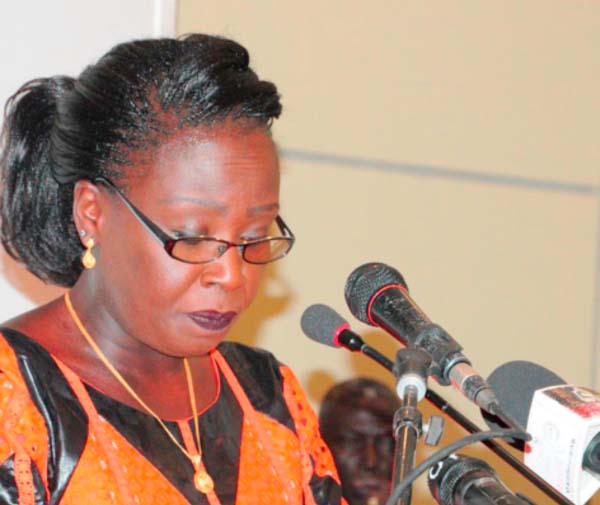
One
of the key challenges of Gambian women in breastfeeding is inadequate support
from male partners at home and in workplaces, the health minister has said.
Minister
Saffie Lowe-Ceesay said the other challenges that Gambian women face in
breastfeeding include long working hours, psycho-social pressure, inadequate
access to skilled breastfeeding counselling, and aggressive marketing of breast
milk substitutes.
She
made this remark on Wednesday at a hotel in Kololi during the commemoration of
World Breastfeeding Week on the theme ‘Sustaining breastfeeding together’.
The
minister said despite the challenges, in The Gambia, almost all the children,
about 99 per cent, have been breastfed.
However,
she continued, only 52 per cent are breastfed within an hour of birth and 48
per cent are exclusively breastfed from birth to six months.
“It
is recommended that children be put to the breast immediately or within one
hour after birth,” she said.
Madam
Lowe-Ceesay said The Gambia is among the first countries to champion
parent-friendly workplace and to advocate for breastfeeding-friendly workplace
among public and private companies and institutions to ensure support for
breastfeeding working mothers.
The
UNICEF deputy resident representative, Rupert J. Leighton, commended the
commitment of The Gambia government for enacting the Breastfeeding Promotion
Regulation 2006.
The
government also adopted the Code of Marketing of Breast milk Substitutes, which
promotes exclusive breastfeeding.
Mr
Leighton said UNICEF would continue to support the government and partners to
ensure that no child or woman is left behind, and to work collaboratively
towards sustainable breastfeeding and improve on best practices on
breastfeeding in The Gambia.
“We
must take up the challenge to ensure that all Gambian babies are given the best
possible start in life,” he said.
The
executive director of National Nutrition Agency (NaNA), Pa Modou Phaal,
said: “If there is any cultural practise
that we are going to abandon, please let it not be exclusive breastfeeding. Let’s
us support and promote exclusive breastfeeding. Let us ensure that our family
practise exclusive breastfeeding.”
He
said the government is on the right track in terms of providing the relevant
policies and programmes for exclusive breastfeeding.


